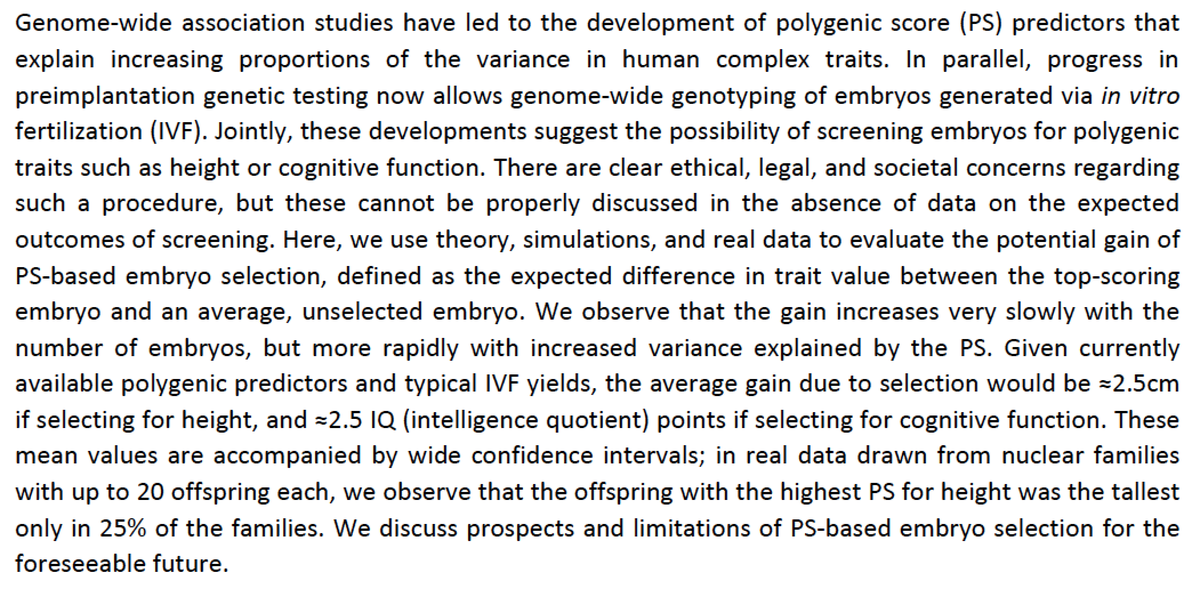We provide an empirical foundation to the ethical debate regarding the generation of “designer babies” by screening IVF embryos. 1/11
@ehudkar @ToddLencz
biorxiv.org/content/10.110…
One company is already offering embryo screening for disease risk scores tinyurl.com/yygzdw7q 2/11
If a company ignored any ethical constraints and offered such a service, how much could height and IQ be enhanced compared to an unselected embryo? 4/11







